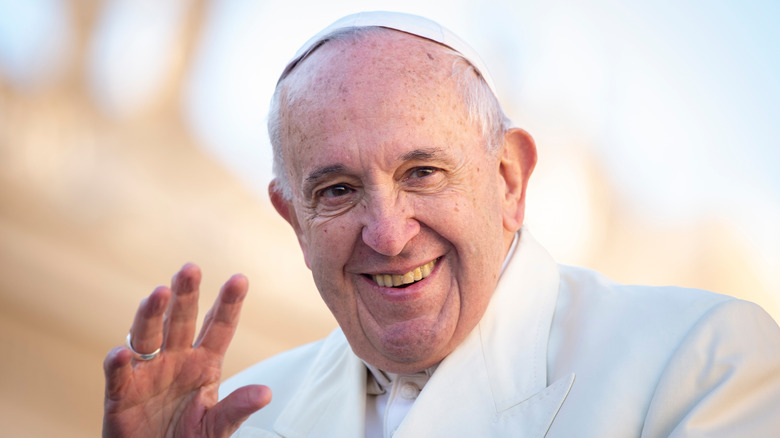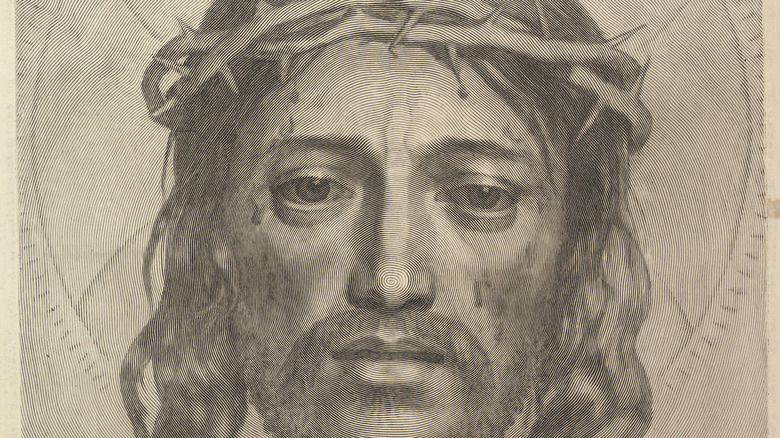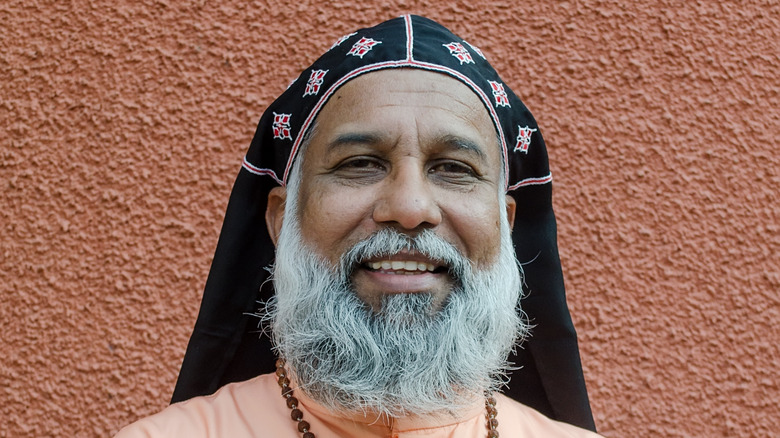You'll Never See The Pope With A Beard. Here's Why
Here's an interesting tidbit you may not have thought of before now. Think about the men who have served as pope in your lifetime. Francis I (pictured above), Benedict XVI, John Paul II, and other men who came before them, have all been clean shaven. In fact, every pope for the past 322, since Innocent XII (1691-1700), has been beardless, while Innocent and the 23 popes before him were unshorn, according to The Telegraph.
In fact, the history of papal facial hair seems to be one of fits and starts. There have been three centuries of clean-shaven pontiffs, preceded by centuries of bearded popes, preceded by a mix of popes bearded and shorn (and that's just the popes whose appearances have been recorded).
The reason for the current trend of clean-shaven popes goes back to a theological debate that appears, for all intents and purposes, to have been settled around the turn of the 17th-18th centuries, according to Aleteia.
Christianity and Beards
Christianity has its cultural and theological roots in Judaism, and as Aleteia notes, Judaism was unambiguous about the importance of beards. For example, multiple passages in the Hebrew Bible speak of the importance of beards as signs of wisdom and honor, or grown and maintained in devotion to God. To forcibly cut another man's beard was seen as an act of extreme violence.
By the time Christianity came along, however, the early believers of the new religion lived and ministered among Greeks and Romans (and included believers from those cultures as well), and the non-Jewish Christians were largely clean-shaven. This planted the seeds for several centuries of debate on the matter. Some early church fathers encouraged the male members of their flocks to grow beards, while others steadfastly advocated for a clean shave. Further still, some monastic societies required their members to grow and maintain bears as signs of piety and austerity.
The Council of Toulouse (1119) forbade clerics from growing their hair or beard "like a layman," but some, including some popes, took that to mean that a well-trimmed beard was permissible. But after the papacy of Innocent XII, beards on popes, and on most high-ranking Catholics, were things of the past.
Theological Optics
By the end of the papacy of Innocent XII, Catholicism had largely decided that beards weren't the way to go for popes, according to The Telegraph. There were two reasons for this, one cultural and one practical — and here the definition of "practical" is being used loosely.
Cardinal Orsini, the Archbishop of Benevento, was an influential theologian who was keen to see clerics clean shaven. Further still, the Church at the time took a page from the French court of the day, who were clean shaven as well, and it was at this time that clean-shaven pontiffs became the standard. While there have been some subsequent attempts to re-introduce the beard to the upper echelons of the Catholic Church, those efforts have been rebuffed by the Vatican.
In a practical sense, having a mustache interferes with drinking from the chalice during the Eucharist, according to Aleteia, and that's as good a reason to shave as any.
None of this is to say that every last high-ranking Catholic is shorn. At least one member of the College of Cardinals (which elects the pope and from which the pope can be chosen) sports a beard: Baselios Cleemis Cardinal Thottunkal, pictured above. Should Thouttunkal be elected pope after the death or resignation of Francis I (unlikely), and should he retain his beard after his election (even more unlikely), we may yet have another bearded pope.


